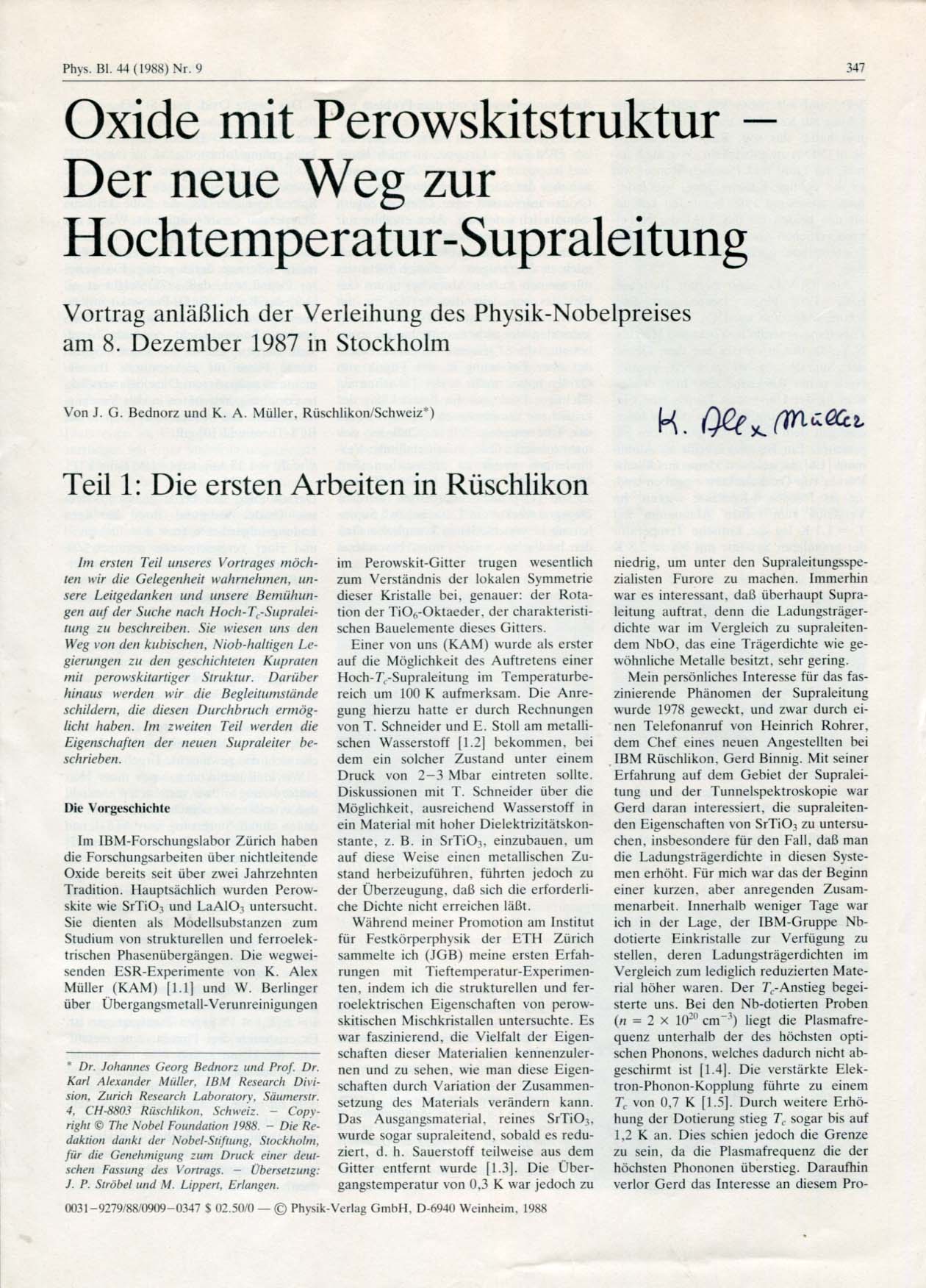Description
Printed scientific lecture signed, twelve pages, 8,5 x 12 inch, in German, lecture on the occasion of the awarding of the Nobel Prize in Physics on December 8, 1987 in Stockholm - titled: `Oxide mit Perowskitstruktur - Der neue Weg zur Hochtemperatur Supraleitung`, in `Phys. Bl. 44 (1988) Nr. 9`, signed on the front page in dark ink "K. Alex Müller", with very mild signs of age wear - in nearly very fine condition.
Further Information on the person
Profession:
(1927-) Swiss physicist, Nobel Prize in Physics (1987)
Year of Birth: 1927
Certificate of authenticity
All of our pieces are sold with a Certificate of Authenticity. If a piece turns out to be wrong or if you do not like an autograph, you will get your money back for a lifetime.
Payment & Security
Your payment information is processed securely. We do not store credit card details nor have access to your credit card information.

